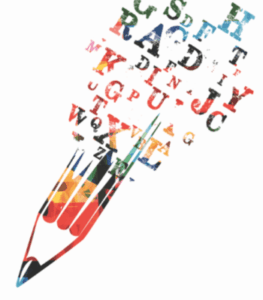 When you talk with academic writers about productivity, you are likely to hear the term ‘writer’s block’. Despite the prevalence of this term, I am resistant to identifying common academic writing difficulties as writer’s block. Most writers who are struggling with their writing are actually struggling with their thinking. That isn’t just a semantic quibble: it matters that we grasp exactly what is inhibiting our writing processes. When we diagnose ourselves as having writer’s block, we can start to believe that we aren’t currently able to write. If you find yourself with a sore leg, it may well be that avoiding walking is a sound strategy. If you find yourself unable to write, might it be a sound strategy to avoid writing? The answer to that question is almost always no. Not writing has little-to-no curative power, in my experience.
When you talk with academic writers about productivity, you are likely to hear the term ‘writer’s block’. Despite the prevalence of this term, I am resistant to identifying common academic writing difficulties as writer’s block. Most writers who are struggling with their writing are actually struggling with their thinking. That isn’t just a semantic quibble: it matters that we grasp exactly what is inhibiting our writing processes. When we diagnose ourselves as having writer’s block, we can start to believe that we aren’t currently able to write. If you find yourself with a sore leg, it may well be that avoiding walking is a sound strategy. If you find yourself unable to write, might it be a sound strategy to avoid writing? The answer to that question is almost always no. Not writing has little-to-no curative power, in my experience.
I’m not saying that we don’t need to take breaks; there are many things that we can do away from our desks to clear our minds and loosen up our ideas. But when we are committed to working, the act of writing is often the most immediate way to tackle the problems in our thinking. The risk of identifying inevitable writing challenges as writer’s block is that doing so can lessen the chance that we will use writing to move our ideas forward.
The idea of writer’s block can thus be seen as having the potential to detach writing from its broader intellectual context. When we treat writing challenges as psychological rather than intellectual, we run the risk of minimizing the conceptual work involved in academic writing. I have, of course, encountered writers who appear to have a disposition towards writing that is so fraught that they may need some sort of psychological shift in order to develop an effective writing routine. But for most academic writers, writing is being hampered primarily by the challenge of sorting out what they think. In other words, they don’t have a psychological block; they simply have the intellectual confusions endemic to the process of communicating sophisticated research. Those intellectual confusions are real, and they can have deleterious consequences for writing. But when we treat these problems as conceptual problems in our thinking, we create the space to use writing as a strategy to solve those problems. Writing can move from being the problematic thing to being a means to solve the problem.
To use writing in this way, I suggest introducing a new font that will signal that you are writing in an exploratory vein for your own benefit. The variant font will remind you that your eventual reader need never see these ruminations, thus lessening your own reticence. Using this new font, try writing something like this: “I’m worried that what I’m saying here …”
“… is inconsistent with what I said on p. 37.”
“… might be confusing the cause with the effect.”
“… may lead the reader to think that my research is less significant than I’ve claimed.”
“…is potentially controversial in my field.”
Staying in this provisional, for-your-own-eyes-only font, try writing a follow-up sentence or passage: “To figure this out, I need to …”
“… re-read the sections on and around p. 37 and decide which formulation works best. Does this shift represent an actual shift in my thinking or just a different way of expressing things?”
“… satisfy myself about the direction of causality in my argument and think of a way to flag all the places where this may have become confused.”
“… revisit my initial claims for significance to see if they are affected by the current line of reasoning.”
“… decide how I feel about the potential for controversy, whether I want to engage with it or instead move in a different direction.”
The key, for me, is that this writing is just that: writing. We can’t, arguably, have writer’s block when we are actively writing. Instead, we may have unresolved issues that are making us want to avoid writing. Using writing as the means of addressing these issues gives us a strategy for inevitable conceptual hurdles. Even in those cases in which writing-about-writing highlights serious problems, we have still made progress by identifying what is wrong. In the end, my concern is simply that the writer’s block label may be further alienating us from our own writing. While it may not be possible to write our way out of all problems, I’m convinced that it is near-impossible to solve writing problems without using writing as our central strategy.
 Rachael Cayley is an associate professor (teaching stream) at the Graduate Centre for Academic Communication at the University of Toronto. She teaches academic writing and speaking to graduate students and is the author of “Explorations of Style”, a blog about academic writing. Before joining the University of Toronto, she worked as an editor at Oxford University Press in Toronto. Rachael can be reached at rachael.cayley@utoronto.ca.
Rachael Cayley is an associate professor (teaching stream) at the Graduate Centre for Academic Communication at the University of Toronto. She teaches academic writing and speaking to graduate students and is the author of “Explorations of Style”, a blog about academic writing. Before joining the University of Toronto, she worked as an editor at Oxford University Press in Toronto. Rachael can be reached at rachael.cayley@utoronto.ca.click for original posting
No comments:
Post a Comment